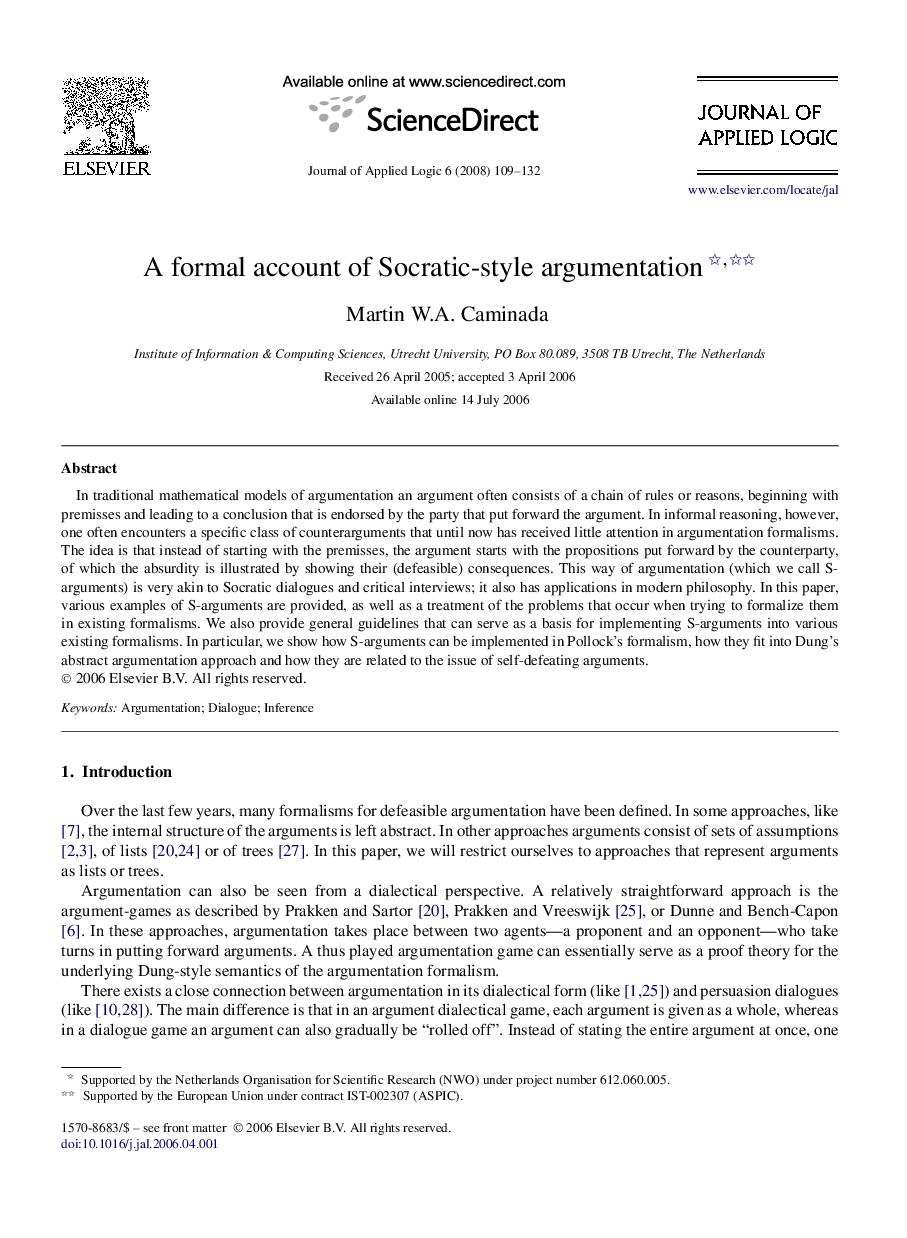| Article ID | Journal | Published Year | Pages | File Type |
|---|---|---|---|---|
| 4663243 | Journal of Applied Logic | 2008 | 24 Pages |
In traditional mathematical models of argumentation an argument often consists of a chain of rules or reasons, beginning with premisses and leading to a conclusion that is endorsed by the party that put forward the argument. In informal reasoning, however, one often encounters a specific class of counterarguments that until now has received little attention in argumentation formalisms. The idea is that instead of starting with the premisses, the argument starts with the propositions put forward by the counterparty, of which the absurdity is illustrated by showing their (defeasible) consequences. This way of argumentation (which we call S-arguments) is very akin to Socratic dialogues and critical interviews; it also has applications in modern philosophy. In this paper, various examples of S-arguments are provided, as well as a treatment of the problems that occur when trying to formalize them in existing formalisms. We also provide general guidelines that can serve as a basis for implementing S-arguments into various existing formalisms. In particular, we show how S-arguments can be implemented in Pollock's formalism, how they fit into Dung's abstract argumentation approach and how they are related to the issue of self-defeating arguments.
